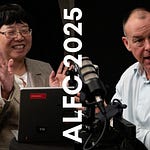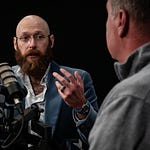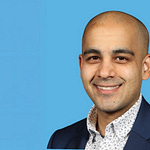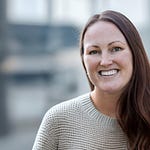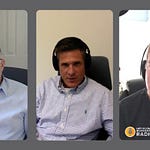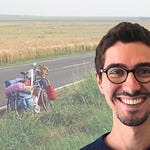Nick Clare is a co-founder of Succession Bio and co-host of the SalesDNA podcast. I recently spoke to Harrison Wade, the other co-founder here. Nick's journey into sales wasn't a planned career move. It was the result of "fear and desperation," as he put it.
Nick was working as a scientist in the lab when his wife was 14 weeks pregnant with their third child. 20 days before Christmas, he was made redundant. Ouch. During his job search, he interviewed with a company where the CEO and CBO offered him two positions - field application scientist or lab manager. Nick, thinking about his growing family and financial needs, asked the most direct question possible: "Which one pays more?" The CBO immediately claimed him for the sales side, recognizing the money motivation that's so crucial in sales.
Nick was honest about his initial resistance. He spent the first six months looking for another job because he was a scientist, not a salesperson. But eventually he realized he wasn’t finding anything he wanted because he actually loved what he was doing. Now he runs a company that teaches sales, selling sales itself. Men make plans and the universe laughs…
I asked about the distinction between sales and business development, something it seems everyone describes differently. Nick's definition is pretty simple: sales is about selling something that already exists - a widget, service, or software - while BD is about selling partnerships to develop something new together. CROs are kind of a hybrid. He pointed out that BD professionals often lag behind in their processes compared to traditional salespeople. They rely heavily on networking but don't utilize the same systematic lead generation and pipeline management that sales teams do.
That brought us into a discussion of cold email (Yikes), but Nick and Harrison's LinkedIn posts have been helping me get over that fear. Nick's perspective is liberating (and reflects the truth): he challenged me to think of a single email from the past two weeks that annoyed me enough to actually do something about it. I couldn't. His point was we only remember emails that resonate positively with us. Everything else just gets deleted and forgotten. We're so worried about negative consequences that we miss the fact that most people won't even notice our outreach, and when they do, it's usually positive.
Nick has a "10 a day" rule from when he managed sales teams - spend five minutes researching each person and reach out to 10 people daily. That's less than an hour of work that results in 200 outreaches per month. That math should be sufficient when you think about pipeline impact.
We have to talk about how Nick uses Notebook LM for sales research. I'm a huge fan of this Google AI tool myself, and Nick's applications are brilliant. He uploads company websites and generates mind maps to visualize all their products and propositions, perfect for visual learners like him, preparing for discovery calls. Even better, he creates AI-generated podcasts from the research materials that he can listen to while driving or multitasking. The fact that you can now interrupt these AI podcasts to ask questions makes it even more powerful.
I shared how I've been using Notebook LM with 10 years of podcast transcripts, creating a searchable knowledge base where people can ask questions about life science marketing and get specific insights from past guests. Nick's using it to help his daughters with homework, having them listen to AI-generated podcasts about complex topics before tackling assignments.
If you are AI resistant, I think you have to recognize what’s coming, whether you like it or not. You can be part of your own plan or part of someone else’s. Quick aside: When I was a kid, my dad had a gag where he had a telephone handset (with a spiral cord pinned inside his jacket. He had a ringer in his pocket that sounded like a phone. He’d pull out the handset and say, “It’s for you.”
What used to be a laugh is now an indispensable reality. Fast forward and this morning I’m using advanced voice mode to have a conversation with ChatGPT about content creation while I’m on a walk. You get the picture.
Nick talks to ChatGPT while driving to customer calls, essentially having a conversation with an AI teammate about strategy and approach. He even created a custom GPT called "Pocket Nick Nick" loaded with his company's public data, so he could access specific information during customer calls in real-time.
What I appreciated most was his practical, no-nonsense approach to both sales and AI. He's not afraid to be direct about money (which served him well in that initial interview), he's systematic about prospecting, and he's embraced AI as a genuine productivity multiplier rather than viewing it as a threat. I’m not making or following predictions about AI making us dumber or smarter or taking our jobs. The only thing I’m sure of is that people will use it.
Nick's story also highlights something I see frequently in our industry - scientists who discover they love the business side of science. There's something powerful about being able to share science broadly rather than going deep into one narrow research area. Nick used a great analogy about being on a boat viewing the horizon versus investigating the Mariana Trench.
This conversation energized me around several things: being more systematic about outreach (those 10 people per day), using AI more creatively in my work, and thinking about BD versus sales more clearly. Nick's journey from reluctant scientist to sales leader shows that sometimes the best career moves come from necessity rather than planning, and that embracing change - even when it feels uncomfortable - can lead to unexpected fulfillment.



